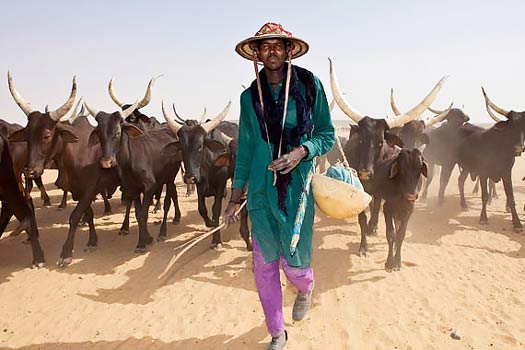
The National President of the Miyetti Allah Cattle Breeders Association of Nigeria (MACBAN), Mohammed Kirowa has stated that herdsmen operating in the country also contribute to the growth of the nation’s economy.
Kirowa stated this on Monday in Makurdi, the Benue State capital during a meeting with the governor of the state, Samuel Ortom over the implementation of the anti-grazing law which is expected to come into effect on November 1, 2017.
He noted that the contributions of herdsmen to the nation’s economic development should not be seen as a nuisance and revealed that over 250 trucks loaded with cattle are transported to the south-western part of the country on a daily basis.
He blamed the northern governors for abandoning over 415 grazing reserves spread across the region which he said if attended to, would go a long way in stopping the incessant rifts between herders and local communities across the country.
While acknowledging that ranching would also be an alternative to curb the incessant killings, Kirowa noted that Nigerians should however realise that cattle rearing was the major means of livelihood of a majority of people from northern Nigeria.
“I passionately appeal to Governor Ortom to discuss with his fellow northern governors on the need to revive grazing reserves by making them all attractive as well as sensitize the herdsmen on the economic benefits of ranching. If this is not done, then the crisis between farmers and herdsmen will continue,” Kirowa said.
He further appealed to Governor Ortom to extend the enforcement time of the law to enable him more time to study the law and consequently sensitise his members on the consequenses of breaking such laws.
Kirowa’s appeal for extension of time was however turned down by the Governor who explained that his government had been magnanimous enough to have given a five-month transition period.
Governor Ortom re-emphasised that the law was not aimed at chasing the herdsmen away from the state but that the state government was prepared to lease land to those who were willing to continue grazing their cattle in the state.

Federal Government Declares May 1st, 2024 As Public Holiday For Workers’ Day
JAMB Releases 2024 UTME Results Following Rigorous Scrutiny
Edo State Governor Approves N70,000 Minimum Wage For Civil Servants
Air Peace Plane Makes Emergency Landing In Lagos Following Fire Warning Indicator